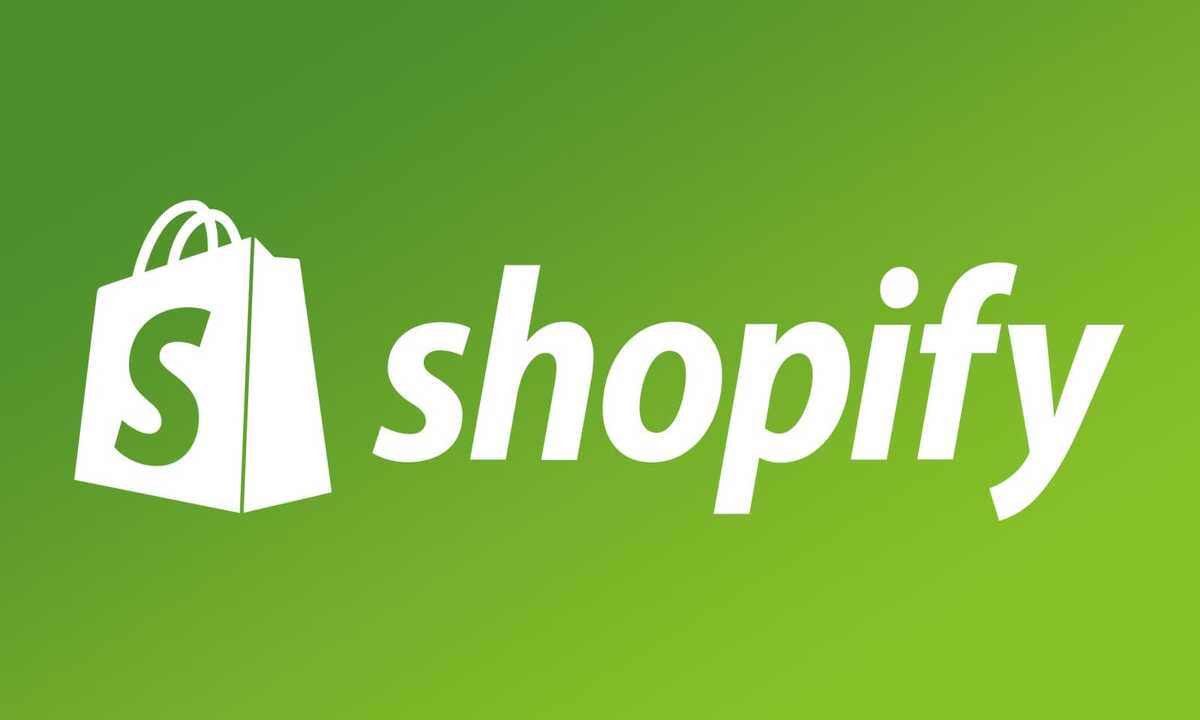With retail brands moving online and new industries cropping up due to changing needs, many entrepreneurs are setting up their eCommerce businesses to cater to different kinds of shoppers. As an eCommerce entrepreneur, you need to be able to set up an online store quickly. If you’re looking for an eCommerce platform, we strongly recommend Shopify.
What is Shopify?
Shopify is a comprehensive e-commerce platform that provides individuals and businesses a platform to create and operate online stores. It provides the tools and infrastructure needed to sell products or services online, manage inventory, process payments, and handle shipping.
Shopify is basically Software-as-a-Service (SaaS) based.This means users can access the platform via the internet, without needing to install complex software on their own computers. Shopify handles all the technical stuff of operating an online store as such; businesses should concentrate on customer service.
Different subscription plans are available in Shopify depending on business needs and sizes. There are many ways for one to start up using a basic plan before scaling up once the business grows bigger. The platform has also appstore with apps that extend its capabilities.
Small business owners, entrepreneurs or large enterprises – regardless of who you are, Shopify wants your journey towards selling online simplified because it will take care of the technology hassles thus enabling you to focus on your business growth.
How Does Shopify Work?
Shopify operates as an all-in-one commerce platform, streamlining various aspects of running an online business.
Here's how it works:
- Store Setup: You can create Shopify stores using its website builder and customizable themes. The themes are responsive, meaning that your store will look good on both desktop or mobile devices.
- Product Management: In the Shopify admin panel, add products, set prices, and manage inventory.
- Order Processing: When a customer places an order, Shopify handles the transaction securely. The platform accepts various payment methods and ensures data protection.
- Inventory Tracking: Realignments in inventory levels across all sales channels are automatic in order to prevent overselling by Shopify.
- Shipping: You can set shipping rates and print labels directly from your admin panel because shipping carriers integrate with the platform.
- Multichannel Selling: Not only on your website but on social media platforms, marketplaces as well as physical stores is where you can sell using Shopify which helps you synchronize inventory and customer data for all channels.
- Analytics and Reporting: To make informed business decisions, detailed reports about sales, customer behavior among other key metrics can be accessed via analytics
- App Integrations: Shopify’s app ecosystem is robust, with more than 4,200 Shopify apps creating apps for merchants. Marketers, service providers or accountants have options to expand their Shopify services through a variety of applications
- Security and Hosting: Shopify handles the technical aspects of hosting and securing your online store, allowing you to access your business data from any device with an internet connection.
By bundling these features into a single platform, Shopify simplifies the e-commerce process. This allows business owners to focus on growing their brand and serving customers, rather than grappling with complex technical issues.
What’s Included in Shopify?
Shopify is a comprehensive e-commerce platform that offers a scalable solution for businesses of all sizes. Its core offering is built on a flexible, layered structure that allows store owners to customize their experience based on their specific needs.
Base Layer: Shopify's Core Product
Every standard Shopify plan includes essential features to launch and run an online business:
- Online Store: Make a website appearance professional by utilizing themes that you can customize. These themes are equipped with contemporary design elements such as animations, dynamic scrolling and hover effects, which give your store a polished and interesting look.
- Multichannel Selling: Tools for selling across multiple platforms including social media and marketplaces in addition to your website.
- Secure Checkout: Shopify’s checkout process is optimized for conversions and security featuring one-click options trusted by major brands.
- Marketing Tools: Built-in features to help you promote your products and grow your customer base.
- AI-Powered Assistance: Time-saving and consistency enhancing features of Shopify Magic, an AI tool helping to generate on-brand content, set up auto-replies and write product descriptions.
- Mobile Commerce: Access the Shop app used to personalize mobile store enabling millions of mobile shoppers access it; this includes customizable collections, categories, navigation etc., which mirror the functionality of the main online store.
- Domain Management: Choose a custom domain name securely hosted through Shopify with full control over configuration as well as customization.
Additional Products and Services
As businesses grow, Shopify offers additional layers of functionality:
- Shopify POS: For businesses with physical locations, this point-of-sale system integrates seamlessly with the online store, syncing inventory and sales data across all channels.
- Shopify Plus: An enterprise-level solution for high-volume businesses, offering advanced features like:
- Customizable checkout with app integrations
- B2B process automation
- Custom audience lists for targeted marketing
- Cross-border selling tools
- 24/7 dedicated technical support
Also read: Shopify vs Shopify Plus - Finding the Right eCommerce Plan
- Commerce Components: A composable stack for enterprise retail, allowing large businesses to integrate Shopify's core features with their existing systems.
- Shopify Collabs: A tool to connect with influencers and affiliate marketers to expand brand reach.
- Shopify Inbox: A chat marketing solution to improve customer engagement and conversions.
App Ecosystem
Shopify’s App Store has a range of apps to choose from to allow you to add new functionalities to your store. From loyalty to marketing to store design, these apps are built to solve highly specific use cases and simplify your work in enabling new features on your Shopify store and scaling its growth.
Shopify’s app ecosystem is robust, with more than 4,200 Shopify apps creating apps for merchants. With this ecosystem, merchants on Shopify have an easier time finding solutions to their problems, no matter how niche their requirements are.
Further Reading: How to Choose Shopify Apps to Grow your eCommerce Store
Scalability and Flexibility
One of Shopify's key strengths is its scalability. Businesses can start small and seamlessly grow on the platform. The platform allows for efficient management of product uploads across multiple e-commerce channels as businesses expand.
Shopify AI & Automation Features
Shopify has been enhancing its platform with AI-powered tools to help merchants automate key aspects of their business. These include:
- Shopify Magic: AI-driven content generation for product descriptions, email responses, and marketing copy.
- Smart Inventory Forecasting: AI-powered analytics to predict stock needs and prevent over/understocking.
- Automated Discounts & Pricing: Tools that optimize pricing strategies based on customer behavior and trends.
These AI-driven features help merchants streamline operations, save time, and improve decision-making.
Shopify for B2B & Wholesale Businesses
Shopify isn’t just for direct-to-consumer (DTC) brands—it also offers robust B2B features:
- Shopify Plus B2B: Enterprise-grade wholesale tools, including custom pricing, bulk ordering, and tax exemptions.
- Customer-Specific Pricing: Personalized pricing structures based on customer accounts.
- Net Payment Terms: Allow B2B customers to purchase on credit and pay later.
With these features, Shopify enables wholesalers, manufacturers, and distributors to run a seamless B2B eCommerce operation.
Headless Commerce with Shopify
For brands looking for ultimate customization and performance, Shopify’s headless commerce setup allows developers to:
- Use Shopify as a backend while designing custom storefronts using React, Vue, or other frameworks.
- Optimize site speed & performance by delivering a seamless front-end experience.
- Leverage Shopify APIs to integrate with any digital experience, including mobile apps and IoT devices.
Headless commerce is ideal for scaling brands that want full creative and technical control over their storefront.
What Products Can You Sell On Shopify?
Shopify accommodates a wide range of products, making it suitable for various types of businesses. Here's an overview of what you can sell:
- Physical Products: This includes items like clothing, accessories, electronics, home goods, and any tangible items that can be shipped to customers.
- Digital Products: Ebooks, software, digital art, music, courses, and other downloadable content can be sold and delivered electronically.
- Services: Consultations, coaching sessions, memberships, and other service-based offerings can be marketed and sold through Shopify.
- Subscriptions: Recurring products or services, such as monthly subscription boxes or content memberships, can be managed using Shopify's subscription tools.
- Dropshipping Products: You can sell products without holding inventory by using dropshipping integrations available on Shopify.
- Handmade Items: Crafters and artisans can showcase and sell their unique, handcrafted products.
- Print-on-Demand Products: Custom-designed t-shirts, mugs, posters, and other items can be sold using print-on-demand services integrated with Shopify.
It's important to note that while Shopify is flexible, certain products are prohibited due to legal or ethical concerns. Always check Shopify's terms of service and local regulations before setting up your store to ensure compliance.
Also read: Ultimate List of Shopify Online Business Ideas for 2024
Shopify Pros and Cons
Now, let’s take a closer look at the advantages and disadvantages of using Shopify for your eCommerce operations -
Pros of Shopify
- Easy to set up. Shopify is built in a way that anything can set up their business in just an hour.
- You can create a development store to test your store, its design, and functions before you launch. With this, you can ensure that your store is set up before you start paying Shopify for hosting.
- A large collection of themes for your store design. You can pick from multiple themes available by Shopify and other theme developers, whether you want a minimal theme or a photo-centric theme.
- Multiple apps to choose from. Shopify has a robust app store that allows you to find the exact solution you need.
- An ecosystem of experts and developers. Shopify has an ecosystem of experts that can help you with any requirement you have. Shopify communities exist across different social platforms so that you can connect with other merchants and find help and new ideas.
- 24/7 support. You can get round-the-clock support for any issues you have. Shopify is known for its thorough customer support.
- Multiple payment methods are available. You can enable 70+ payment methods on your Shopify store.
- Scalable. Shopify has different plans available for your changing needs. This way, you can scale up as you grow.
- Mobile responsive. Every theme is mobile-responsive, ensuring that your store design is easy to use on different devices.
“If you need to start selling online today, Shopify is a great option, fast, responsive, and reliable.
With Shopify, you will find great versatility through its ecosystem of applications that you can find in its marketplace
Something extremely important is that with Shopify you will not require programmers and a hosting provider because you do not have to worry about technical issues such as high availability, security, and staggering.”
Cons of Shopify
- Limited customization for the checkout process. Since checkout processes have a set structure and require specific details, you can't customize this part of the store.
- The eCommerce platform charges a small transaction fee for every sale made.
Also read: Compare Shopify, BigCommerce, Magento & WooCommerce
Reasons to choose Shopify
- Shopify provides a user-friendly interface and a wide range of customizable themes and templates to help you create a visually appealing and professional-looking online store.
- Integrate Shopify with social media platforms like Instagram and Facebook to reach a broader audience and drive traffic to your store.
- Use Shopify's built-in SEO features to optimize your store for search engines and improve your visibility in search results.
- Leverage Shopify's analytics and reporting tools to track your sales, monitor customer behavior, and make data-driven decisions to grow your business.
- Join Shopify's community of entrepreneurs to connect with like-minded individuals, share insights, and learn from experienced professionals.
Also read: Why and How to Choose the Best Shopify Sales Channels
Ultimate Guide To Total Cost of Ownership For Shopify Stores (2024)
Top Brands on Shopify
Here are five industry leaders that leverage Shopify and Shopify Plus -
1. Gymshark
Started by a 19-year-old, Ben Francis, back in 2012, Gymshark is a fitness apparel startup. Today, Gymshark is one of the fastest growing global fitness and apparel brands globally.
In just a matter of 7 years, Gymshark has achieved great success with building an empire that’s valued between £300M and £400M!
Read more: Shopify Store Design of Gymshark: Inspiring eCommerce Layouts
2. Heinz
Heinz is a brand that has been around for a long time. They are one of the most trusted brands in America, and its products have been around for decades. This means that consumers would have high expectations from them even when they step into the world of eCommerce—the look and feel of their website should be as timeless as the products themselves.
It’s no wonder they decided to go ahead with the most reliable eCommerce solution today - Shopify.
Read more: Shopify Plus Design Breakdown -Taking UI and UX Inspiration from Heinz
3. Allbirds
Allbirds is a pioneer in the footwear industry that believes in simple designs, comfort over everything else, and the use of natural materials. The founders - Tim Brown and Joey Zwillinger - developed “an entirely new category of shoes inspired by natural materials, and an ongoing mantra to create better things in a better way.”
Allbirds was the first Direct-To-Consumer (DTC) brand to open an IPO. This brand stands as one of the biggest DTC success stories of the past decade, with an evaluation of over $1 billion.
Read more: Shopify Store Design of Allbirds for UI/UX Design Inspiration
4. Tiffany & Co.
Tiffany & Co. is an international luxury jewelry brand. This brand is an industry giant. It is one of the world’s leading luxury brands, with an unparalleled reputation for excellence.
Tiffany & Co. is a great example of how a luxury brand can use the web to create a fantastic customer experience. For instance, the site's homepage is clean and easy to navigate. This is in stark contrast to other luxury brands that rely on elaborate imagery or self-promotion to introduce themselves as lifestyle destinations rather than places to buy things.
Read more: Ecommerce Store UI/UX Design Inspiration From Tiffany & Co.
5. Rare Beauty by Selena Gomez
Rare Beauty by Selena Gomez is on the run to triple its net worth this year after its clanging net revenue of $70 million in the previous year. With an average website visit of over 1 million in September 2023 alone, is it one of the top Shopify stores out there.
Read more: 13 Shopify Store Design Inspirations From Rare Beauty Store
Want to set your store up on Shopify?
Shopify is a platform built for eCommerce stores, ensuring that the feature sets available on the platform are constantly optimized and up to the needs of the merchants.
With Shopify’s large ecosystem of merchants, developers, apps, and experts, store owners like you can easily get the help they need, find the right solutions, and work with other like-minded individuals to improve your online business.
Our team of Shopify experts works with Shopify merchants like you to the store design that reflects the personality of your brand and caters to the functionalities you require. Whether you want to revamp your existing design or build a new one from scratch, we will help you create a positive shopping experience on your Shopify store design.
Reach out to us on info@xgentech.net and we’ll help you set up your Shopify store design!




